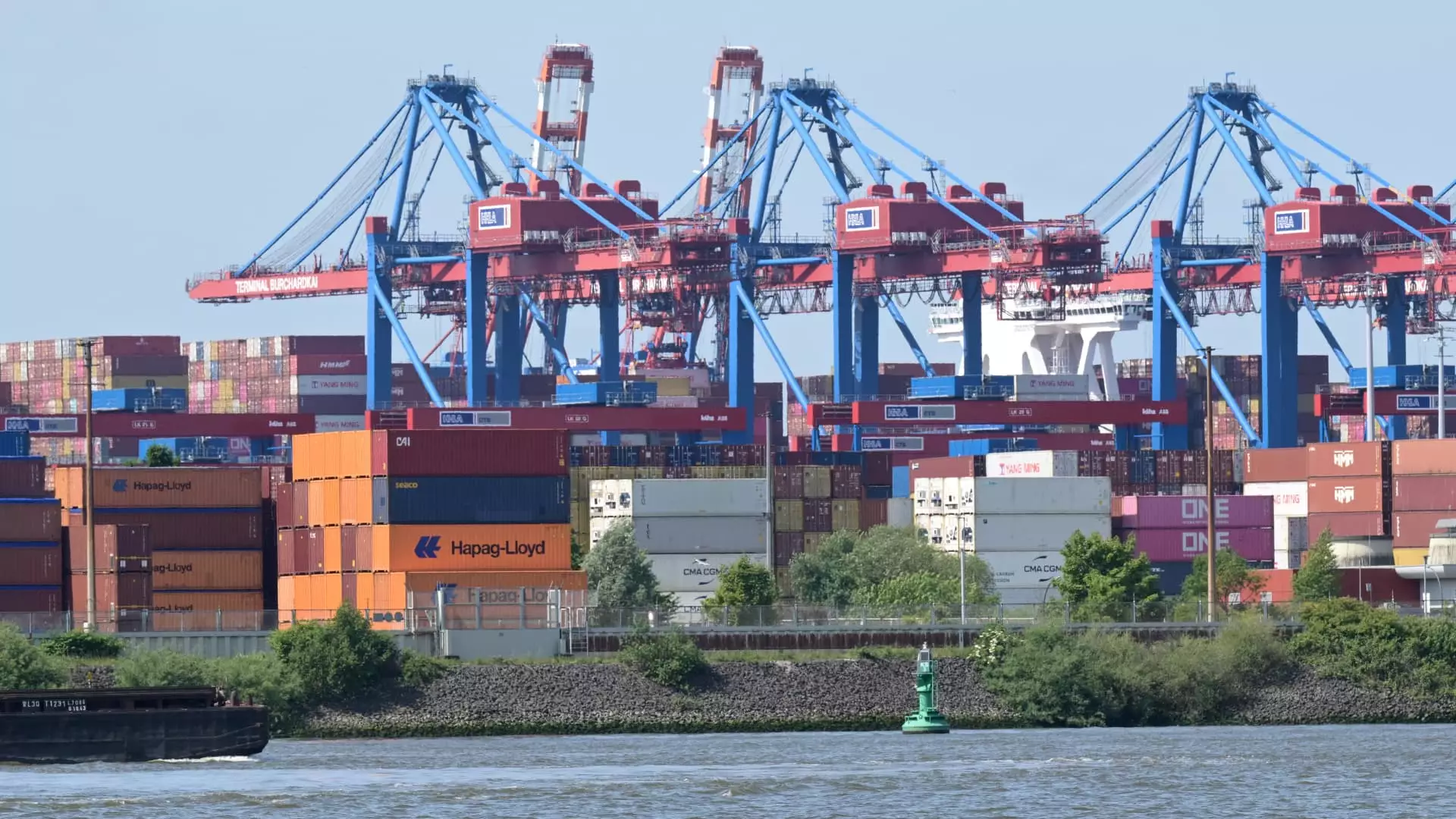As the clock ticks down on the looming deadline, the U.S. and European Union stand at a precarious crossroads in their economic partnership. The coming days are critical, not merely for the future of transatlantic trade but for global market stability. The threat of tariffs reaching as high as 50% on EU imports to the United States underscores the fragility of their mutual cooperation. This situation exposes a broader truth: despite their shared history and economic symbiosis, the transatlantic relationship is increasingly strained by divergent political agendas and economic interests.
The Trump administration’s provocative tariff moves aimed at recalibrating what it perceives as an unfair trade balance have cast a long shadow over the relationship. While these tariffs are justified by their proponents as a means to protect American industries, they risk igniting a trade war that could destabilize markets far beyond the Atlantic. The EU’s consideration of retaliatory measures signals a dangerous escalation, turning what should be a cooperative dialogue into a potential conflict zone. The mutual dependence of the U.S. and EU—accounting for nearly a third of all global trade—should ideally serve as an anchor of stability, but instead, it appears vulnerable to political brinkmanship.
The Economic Disparities and Power Dynamics Behind the Impasse
The figures involved reveal the complexity beneath the surface. In 2024, the extensive trade volume of approximately 1.68 trillion euros demonstrates the vital importance of this partnership. However, despite the impressive trade figures, underlying disparities create vulnerabilities. The EU’s trade surplus of 198 billion euros, contrasted with its service trade deficit, emphasizes structural imbalances that are often exploited in political narratives. To American policymakers, these numbers represent opportunities to push for more favorable terms, but they also expose the exploitability of the entire system.
Leaders on both sides are unwilling to compromise on key issues, with European officials openly acknowledging that a comprehensive, detailed agreement is unlikely within the present tight time window. Instead, they seem to accept a minimalist “agreement in principle”—a vague promise that leaves many details unresolved and ripe for future disagreements. This piecemeal approach reflects the deeper strategic mistrust and differing priorities that have been exacerbated by recent global upheavals and domestic political pressures.
While European officials emphasize their desire for an “ambitious” trade deal, reality suggests a more cautious, wait-and-see posture. The EU’s stance illustrates a perceived power imbalance—an attempt to protect its interests in a context where U.S. threats of tariffs are perceived as unilateral and punitive. This dynamic signals a broader shift toward transactional diplomacy that is more about strategic posturing than long-term partnership.
The Risks of a Collapsing Atlantic Alliance
The possibility of no agreement is more than just a diplomatic setback; it represents a threat to the rules-based international order. The potential for tariffs and retaliatory measures to trigger broader trade disruptions could undermine decades of economic cooperation. Beyond the immediate economic fallout, this situation highlights the fragility of alliance-building in an era increasingly characterized by populist and nationalist sentiments.
European leaders, including Ursula von der Leyen, have been deliberately pragmatic, recognizing that resolution may be out of reach within the current framework. Their reluctance to overpromise reflects an awareness that rushing into a comprehensive deal might do more harm than good, especially if it sacrifices critical regulatory and strategic interests in the process.
For the U.S., the administration’s strategy seems more rooted in asserting dominance than fostering genuine partnership. This approach risks alienating allies who have historically served as pillars of stability in global governance. The uncertainty surrounding the negotiations suggests that the transatlantic alliance, long considered a cornerstone of Western power, might be readjusting itself amid rising geopolitical tensions and internal political upheaval.
In this context, the grip of short-term political gains over long-term strategic interests is alarming. If the upcoming deadline results in tariffs and retaliations, it could set a precedent that undermines trust in multilateral negotiations, causing ripple effects well beyond the immediate economic sphere. It is a wake-up call for policymakers: cooperation must outweigh confrontation if the West hopes to maintain its influence and ensure stability in an unpredictable world.


Leave a Reply